Rahul Gandhi says RSS’ idea similar to Muslim Brotherhood in Arab world, BJP calls Congress chief immature
"RSS is trying to change the nature of India. Other parties haven't tried to capture India's institutions. RSS's idea is similar to the idea of Muslim Brotherhood in the Arab world," the Congress chief said.
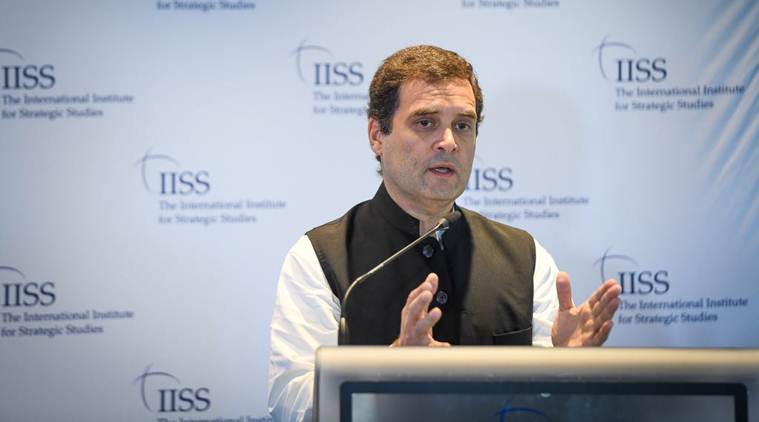
Congress president Rahul Gandhi at the event in London on Friday. (Source: INC)
Reviving his attack on Prime Minister Narendra Modi and the Rashtriya Swayamsevak Sangh (RSS), Congress president Rahul Gandhi Friday compared the BJP’s ideological parent to the “Muslim Brotherhood in the Arab world”, accusing it of “changing the nature of India”.
“RSS is trying to change the nature of India. Other parties haven’t tried to capture India’s institutions. RSS’s idea is similar to the idea of Muslim Brotherhood in the Arab world,” the Congress chief said while addressing the gathering at the International Institute of Strategic Studies in London.
Alleging that the concept of note ban was the brainchild of the RSS, Rahul said, “The idea of demonetisation came directly from RSS, bypassed the Finance Minister & RBI, and was planted in Prime Minister’s head.”
Responding to Gandhi’s remarks, BJP spokesperson Sambit Patra said the Congress president did not have maturity and understanding of India. “You have said that the ideology of the government is that of the Muslim Brotherhood? You’re a parliamentarian and the president of a Congress party,” Patra said during a press conference in Delhi.
“Rahul ji you have no maturity and understanding of India. You have no facets. The only quality you possess is hatred against PM Modi and BJP,” the BJP spokesperson added.
Read | In Hamburg, Congress president Rahul Gandhi blames joblessness, demonetisation, GST for lynchings
Upping the ante against PM Modi over the alleged presence of Chinese troops in the Doklam territory, the Congress leader said the prime minister could have averted the episode had he been alert. “The truth is the Chinese are still in Doklam today,” he said, adding, “Doklam is not an isolated issue. It was a part of a sequence of events, it was a process. Prime Minister is episodic. He views Doklam as an event. If he was carefully watching the process, he could’ve stopped it.”
On India’s efforts to maintain relations with neighbouring Pakistan, Rahul said PM Modi does not have a “deeply thought-out strategy”, but acknowledged that it was “very difficult” to converse with Islamabad as there is no single institution there that holds supremacy. “There is no deeply thought out strategy by PM Modi when it comes to Pakistan,” he said, adding, “It’s very difficult to converse with Pakistan because there is no one institution that holds supremacy. So we wait until they come to form a cohesive structure.”
Accusing the prime minister of centralising power, the Congress leader said, “What is going on in the last four years is massive centralisation of power. India’s successes have come whenever power has been decentralised.”
He added, “By breaking the monopoly of MEA and by making it more accessible to other elements of society a modern MEA can be formed. The foreign minister of India spends a massive amount of time in just making visas.”
Rahul also said that several businesses in India were disappointed with the government due to “pressure” from the investigative agencies. “Businesses had expected a lot from PM Modi. But they are disappointed and are willing to support us. But today, there is an immense amount of pressure from the Central Bureau of Investigation and Enforcement Directorate on India’s businesses,” he said.
Asserting that India is not “maximising its power”, Rahul said, “If you understand deeply the design of India, you will see that we are punching below our weight. One of my main complaints about the current government in India is that I don’t see a coherent strategy based on India’s strengths. I only see knee-jerk reactions.”
Besides this, the Congress supremo met the senior leadership of the UK’s Opposition Labour Party and discussed bilateral, regional and global issues, and highlighted the difficulties faced by Indian professionals and students following the change in Britain’s visa policy.
Rahul and the Labour leadership, including Shadow Cabinet members, discussed issues of unemployment, growing protectionism, trade wars and threat to rule-based international order. The two parties expressed concern over threats of terrorism and forces of violence to stability and peace and also acknowledged the value of the UK-India economic partnership including growing investments and technology cooperation.
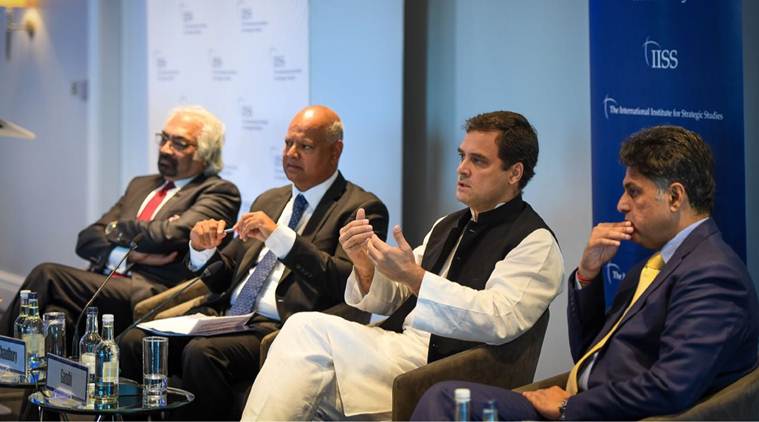 “Doklam is not an isolated issue,” Rahul Gandhi said. (Source: INC)
“Doklam is not an isolated issue,” Rahul Gandhi said. (Source: INC)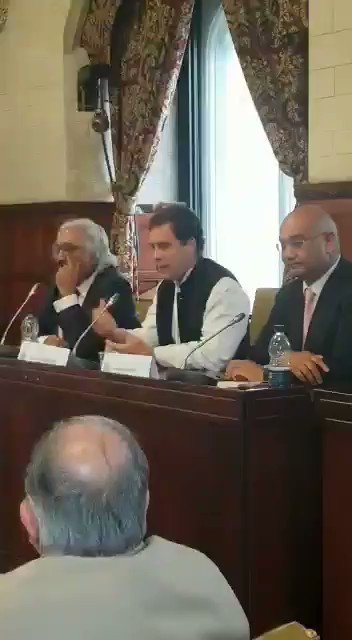
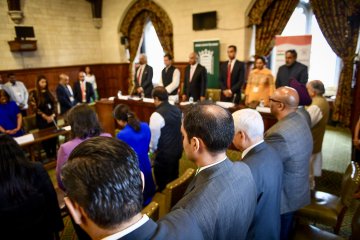
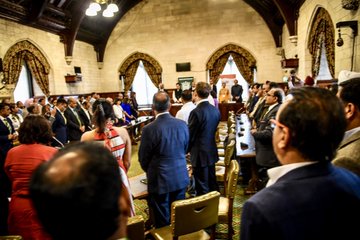






































No hay comentarios:
Publicar un comentario